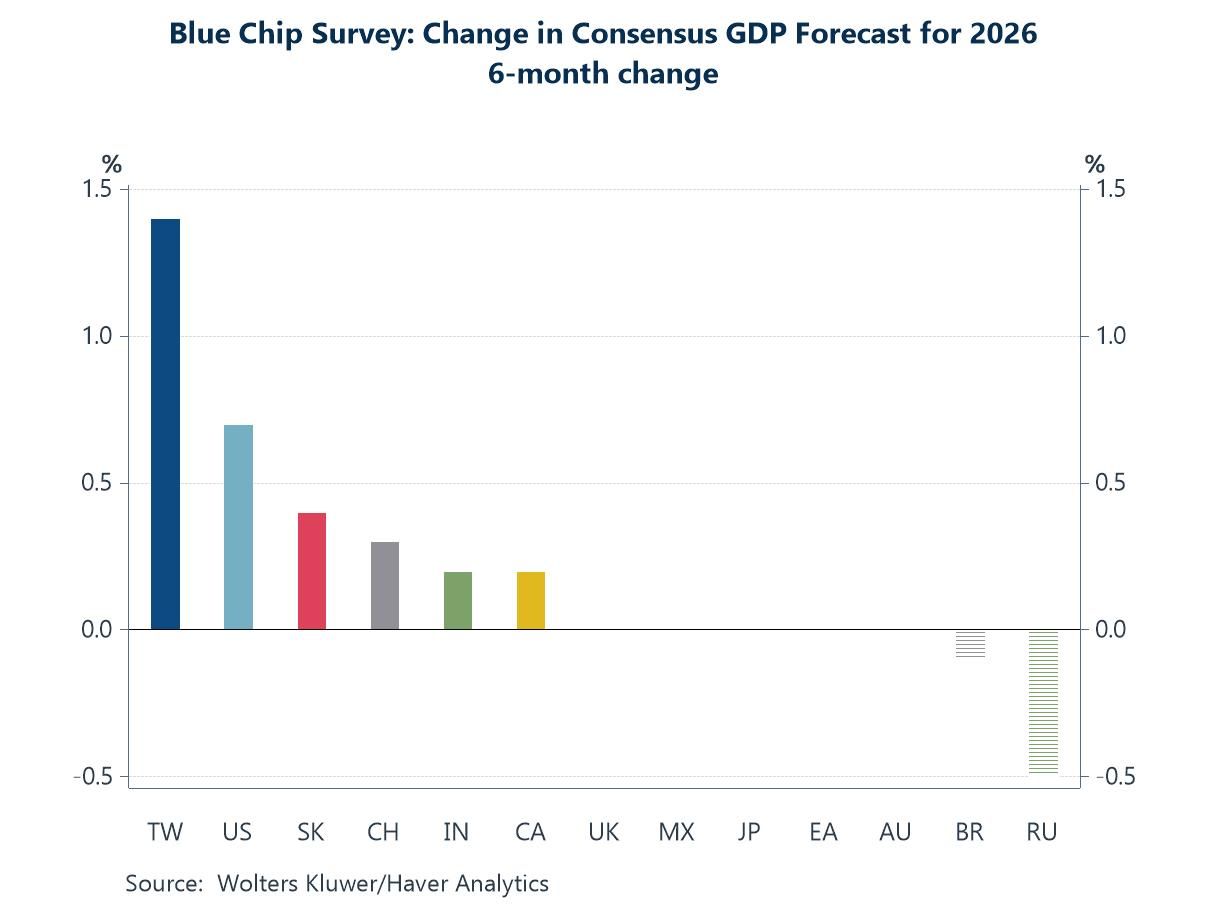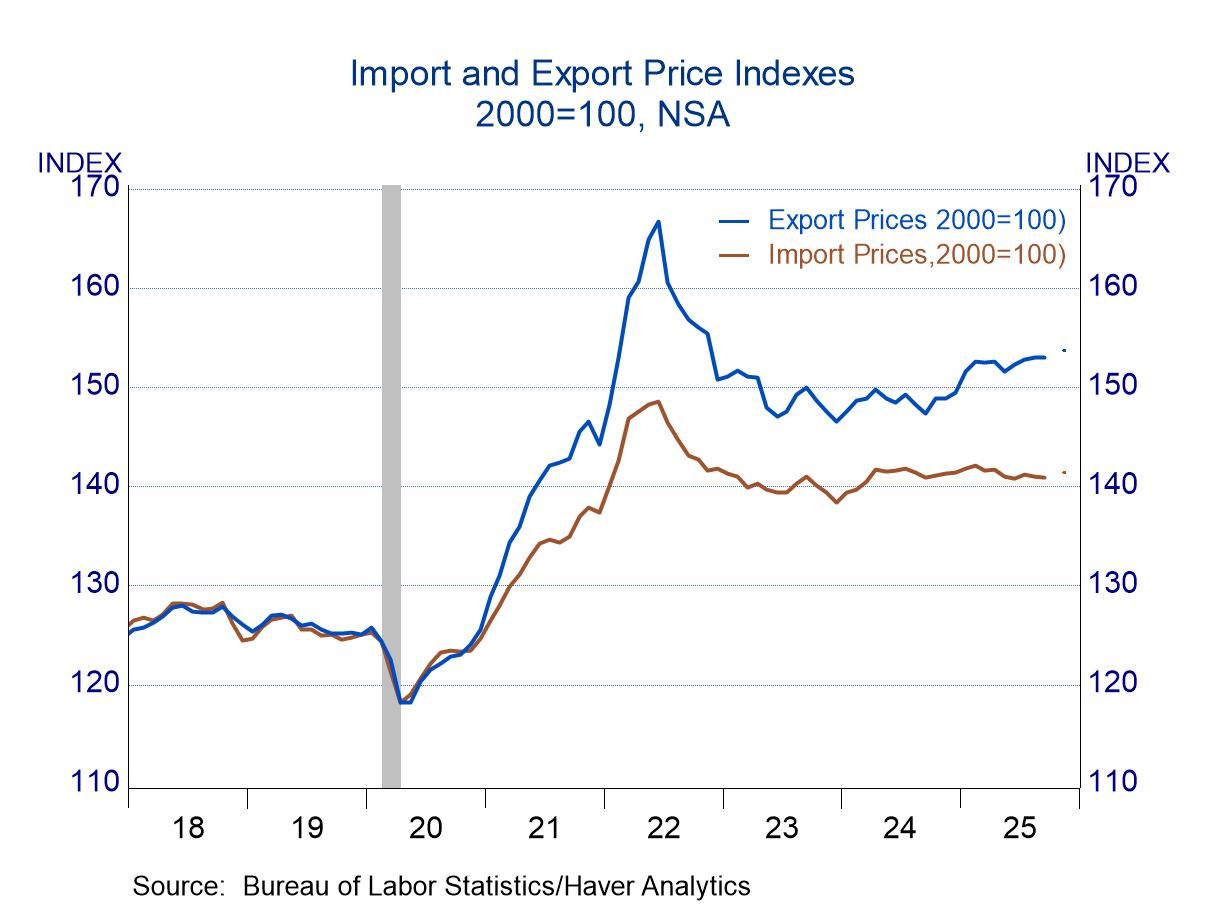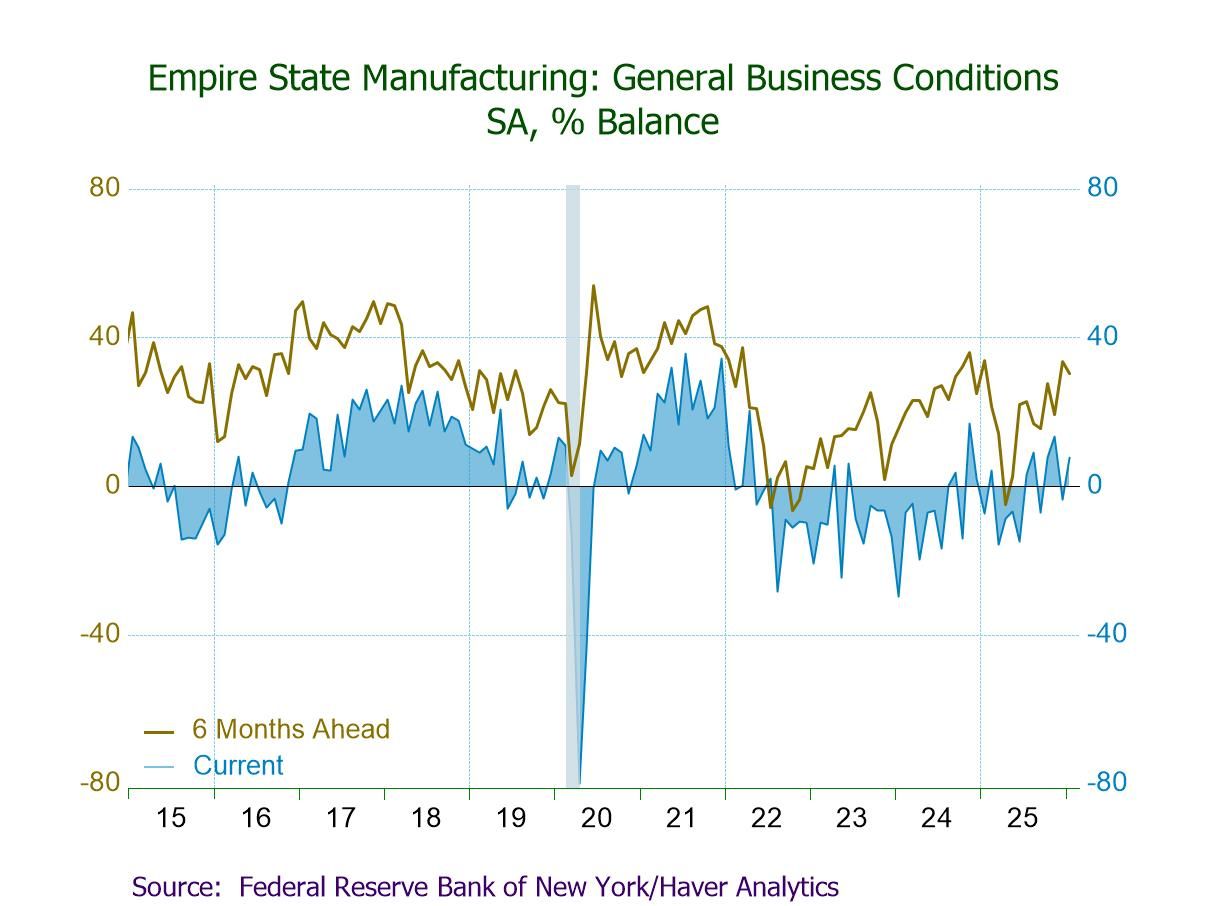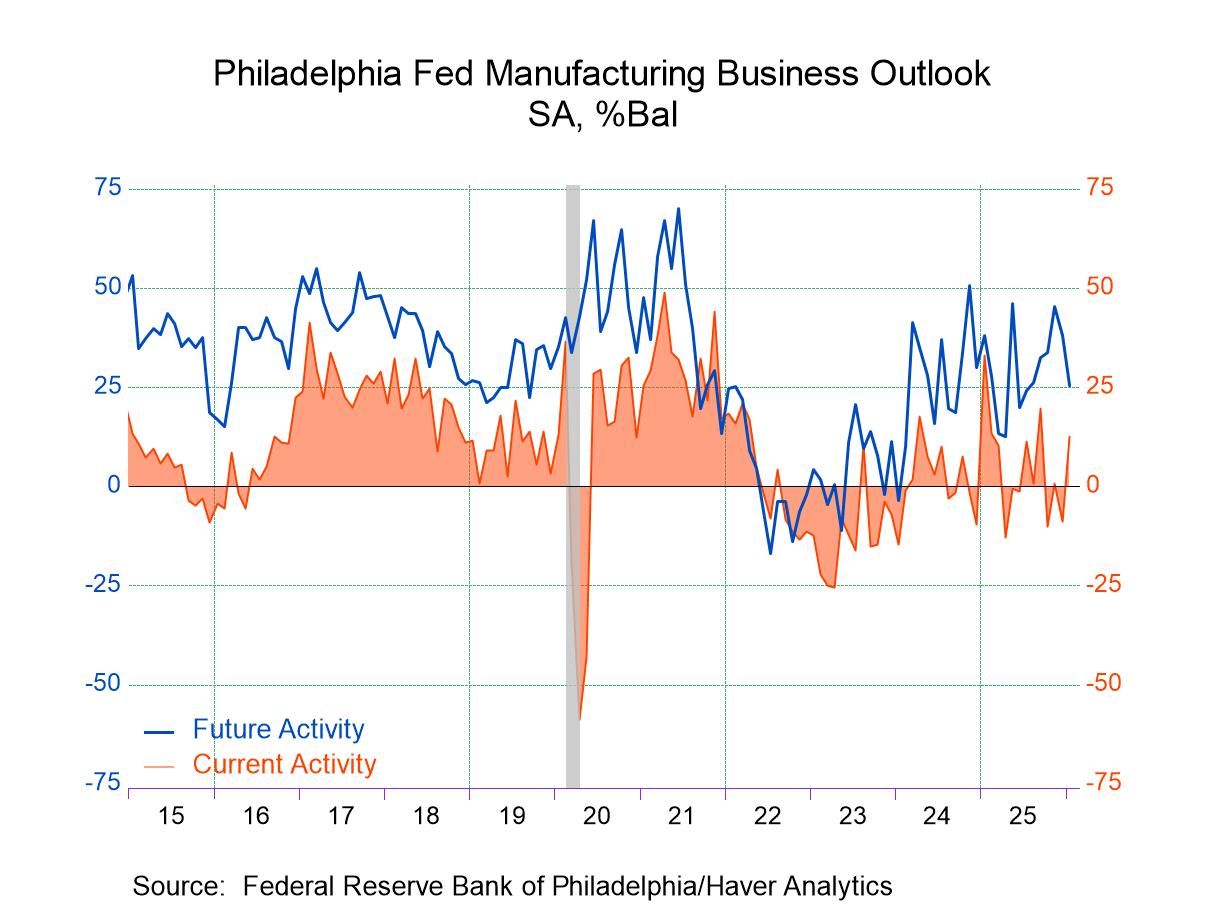 Global| Nov 29 2007
Global| Nov 29 2007US 3Q GDP Up 4.9%: Trade & Inventories Boosted Revision, Profits Fell
by:Tom Moeller
|in:Economy in Brief
Summary
U.S. real GDP growth during the third quarter was revised upward to 4.9% (AR) from 3.9% in the advance report. The latest figures from the Commerce Department were about as expected. The revision came from two components only: net [...]
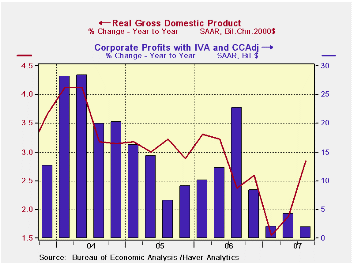
U.S. real GDP growth during the third quarter was revised upward to 4.9% (AR) from 3.9% in the advance report. The latest figures from the Commerce Department were about as expected. The revision came from two components only: net exports and inventories.
Improvement in the net export deficit added 1.4 percentage points to GDP growth during 3Q versus an initial indication of a 0.9 point add. During 2Q, improved net exports made a 1.3 percentage point growth contribution. A modest upward revision to export growth to 18.9% (AR, 10.2% y/y) added 2.1 points to GDP growth and a modest downward revision to import growth to 4.2% (1.7% y/y) left imports subtracting 0.7 points from growth.
Inventories added a revised 1.0 percentage points to 3Q growth in GDP versus an initial indication of just a 0.4 add. Inventories contributed 0.2 points to 2Q growth and that contribution has been negative this year.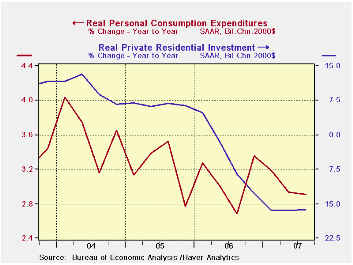
Overall corporate profits fell at a 4.6% annual rate (+1.9% y/y) last quarter. The housing market's travails weighed down the financial sector' earnings by 20.5% (AR, +3.4% y/y). Domestic nonfinancial sector profitability also fell 5.9% (AR, -8.3% y/y) as costs rose but the lower dollar boosted rest of world earnings by 30.9% (AR, 34.7% y/y).
Growth in final sales to domestic purchasers actually was taken down a notch to 2.4% but still remained slightly improved from the 2.1% growth during the second quarter.
The drop in residential investment last quarter was left roughly unchanged and it fell 19.7% (AR, -6.3% y/y). It subtracted 1.0 percentage points from growth during 3Q after subtractions of between 0.6 and 1.3 percentage points in each of the prior five quarters.
Firm growth in business fixed investment continued as the underpinning of US demand. The 9.4% (5.2% y/y) rate of growth was upwardly revised and it added 1.0 percentage points to 3Q growth, about the same as during 2Q. Spending on structures was upwardly revised with a 14.3% rate of growth (13.3% y/y) and spending on equipment & software also was revised up to 7.2% (AR, 1.7% y/y) after weak growth or q/q declines from 2Q '06 to 1Q '07.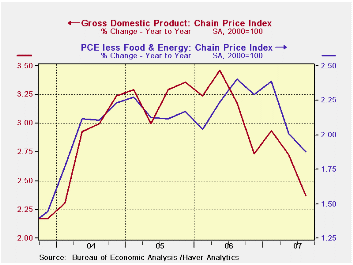
Growth in real personal consumption expenditures was taken down a notch to 2.7% (2.9% y/y) but it still was double growth during 2Q. Growth in spending on durable goods rose 4.0% (4.6% y/y) despite a 4.9% drop in spending on motor vehicles. Nondurable goods spending rose 1.9% (2.2% y/y), which was lower than originally indicated, and services spending growth held steady at 2.8% (3.0% y/y).
The GDP chain price index was left little changed at a 0.9% growth rate. Nonresidential (+0.8% y/y) and residential (+0.7 y/y) investment price indexes both fell during 3Q while consumer prices rose 1.7% (2.% y/y), held back by the decline in gasoline prices. Less food & energy consumer prices rose 2.2% (2.2% y/y), a number that was revised up slightly.
The latest Beige Book from the Federal Reserve Board is available here.
| Chained 2000$, % AR | 3Q '07 Preliminary | 3Q ' 07 Advance | 2Q '07 | Y/Y | 2006 | 2005 | 2004 |
|---|---|---|---|---|---|---|---|
| GDP | 4.9 | 3.9 | 3.8 | 2.8 | 2.9 | 3.1 | 3.6 |
| Inventory Effect | 1.0 | 0.4 | 0.2 | -0.4 | 0.1 | -0.2 | 0.4 |
| Final Sales | 3.9 | 3.5 | 3.6 | 3.1 | 2.8 | 3.3 | 3.3 |
| Foreign Trade Effect | 1.4 | 0.9 | 1.3 | 0.9 | -0.1 | -0.2 | -0.7 |
| Domestic Final Demand | 2.4 | 2.5 | 2.1 | 2.1 | 2.7 | 3.3 | 3.8 |
| Chained GDP Price Index | 0.9 | 0.8 | 2.6 | 2.4 | 2.6 | 1.7 | 2.1 |
Tom Moeller
AuthorMore in Author Profile »Prior to joining Haver Analytics in 2000, Mr. Moeller worked as the Economist at Chancellor Capital Management from 1985 to 1999. There, he developed comprehensive economic forecasts and interpreted economic data for equity and fixed income portfolio managers. Also at Chancellor, Mr. Moeller worked as an equity analyst and was responsible for researching and rating companies in the economically sensitive automobile and housing industries for investment in Chancellor’s equity portfolio. Prior to joining Chancellor, Mr. Moeller was an Economist at Citibank from 1979 to 1984. He also analyzed pricing behavior in the metals industry for the Council on Wage and Price Stability in Washington, D.C. In 1999, Mr. Moeller received the award for most accurate forecast from the Forecasters' Club of New York. From 1990 to 1992 he was President of the New York Association for Business Economists. Mr. Moeller earned an M.B.A. in Finance from Fordham University, where he graduated in 1987. He holds a Bachelor of Arts in Economics from George Washington University.



